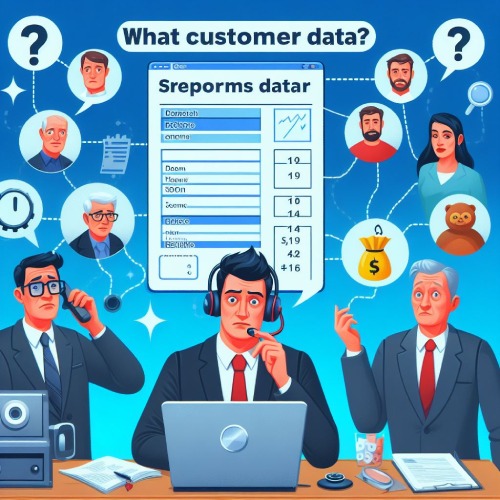As a sales manager, you take a leading role in the company: you develop the sales strategy and manage the sales force to develop revenue. But you are not alone: your sales managers and sales representatives are actors who must be mobilized, motivated and controlled to achieve your objectives.

Do your sales people apply your sales strategy?
You presented your new sales strategy to all your sales and marketing managers on a magnificent powerpoint: the new market segments to be invested in, the products to be sold first...
...And then each salesman went back to his old habits: he continues to sell what he has always sold, to prospects he knows well. It's so much more comfortable not to change anything.
For your strategy to work well in practice, you need good CRM software. With your integrator, translate this strategy into a series of global and intermediate indicators that will allow you to measure the quality of your sales action. Beyond the overall turnover of each of your sales representatives, you will now know in real time whether they are working on the new products or markets that YOU have defined.
Is the prospecting well done?

Do your sales people optimize their daily activities?
Do your sales representatives travel to the field? Help them organize their tours. By collecting data within your CRM software, your sales managers will be able to rationalize sales representatives' movements, according to various criteria: geographical proximity, prospect location, etc.
From June 15 to 30, you can also assign all prospects in the closing phase to them in priority management, in order to collect signatures before the summer. It's easy: your CRM dashboards tell you exactly who the prospects are at this commercial level.

Are deals well followed up on time?
What could be more frustrating than a salesman who promised himself to call a prospect back and who, because he is too late, misses the deal?
Worse: how to fight against the "refrigerating effect"? You know: those salespeople who have reached their monthly or quarterly objectives and who keep a few prospects on ice for later...
From now on, your CRM software will send your sales representative an alert if it takes too long to call back a "hot" prospect. And if your sales representative ignores this alert, your sales manager will receive one too. And for a complete commercial tracking, you can even ask the CRM to send an alert to the commercial director, if the sales manager himself has ignored the alert.
What customer data do your sales representatives record?
Finally, if this post is called "Do you know what your sales people do?", we could have added to its title with "Do you know what your sales people record?
A software program configured by a good CRM integrator should allow you to replace the feelings of your sales teams with precise data, on which you can capitalize.
Thus, no more unusable "text block" reports! Your CRM will be able to force sales representatives to write reports for each appointment they make, requiring them to write few reports, but no more checkboxes. This will save them time in this tedious job (and they don't like it); but it will also provide you with solid CRM statistics. As a result, your strategic adjustments will no longer be based on opinions, but on facts.
And then any sales manager who has seen his best salespeople leave knows it all too well: when a salesman leaves the company, he takes with him all his experience and the non-standardised data he has acquired over the years (Ah! This little notebook in which he wrote everything down...). With a properly configured CRM software, it's over: the customer data remains the property of the company.







